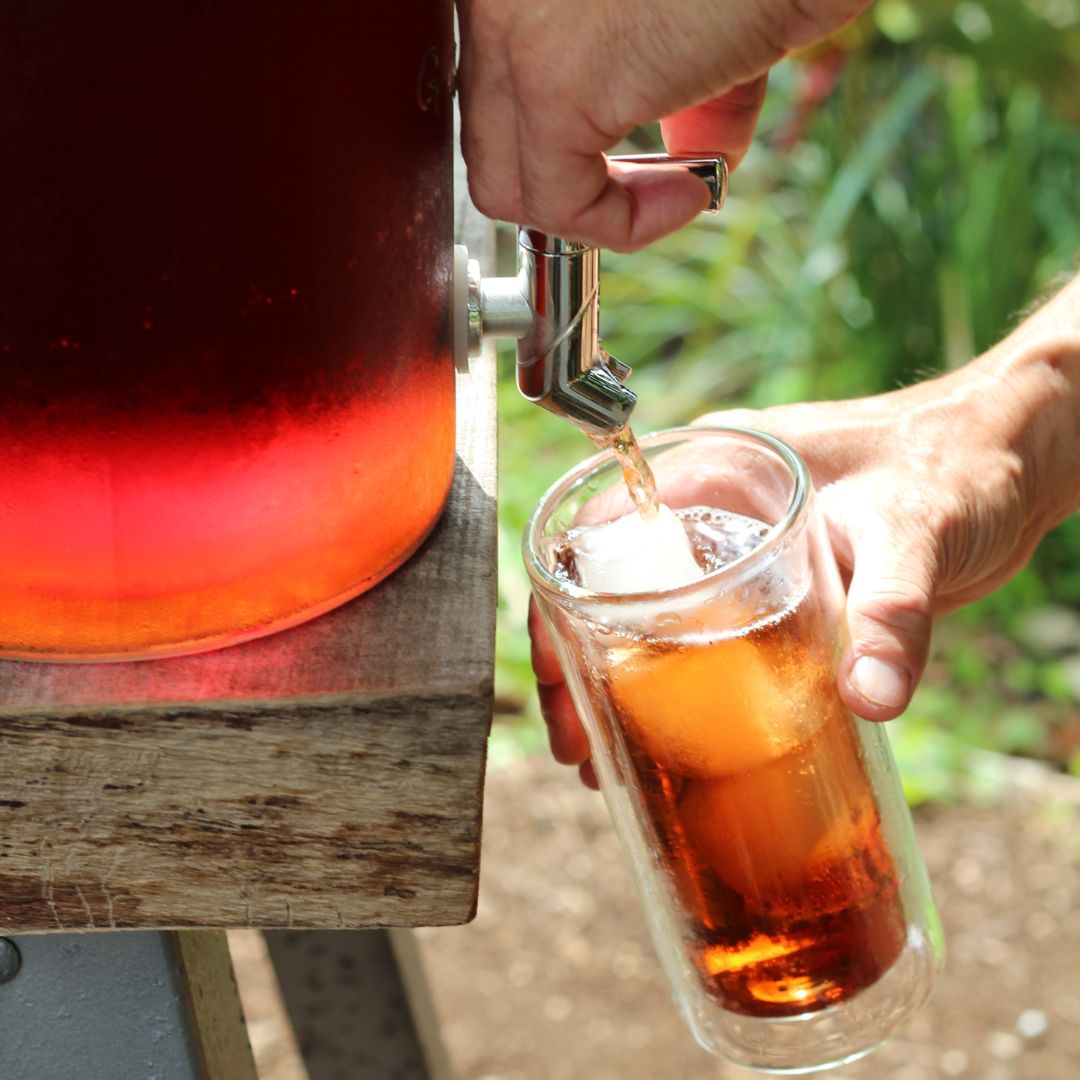Your basket is empty.
Check out our most loved:




— LEHIA APANA
‘Ulu, or breadfruit, is a “canoe crop” — originally brought by Polynesians when they first arrived in Hawai'i. It is the overstory, providing shade and protection to the forest. And Māmaki, endemic to Hawai`i, loves shade. So it thrives around the ‘Ulu. Their pairing represents what a reciprocal relationship can be at its best. And it translates to the Tea.
The result is a powerful elixir filled with antioxidants and a nutty, herbal, naturally sweet taste — with Māmaki being deeply revered as an ancient healing plant in lāʻau lapaʻau, or Hawaiian plant medicine. Brewing not just physical and ecological vitality, but also a cultural and spiritual connection to past generations.
— LEHIA APANA
This connection to the past came as a surprise. It happened when Lehia and Brad first arrived at Polipoli. The land was totally overgrown with invasive plants, and as they began to clear it, they were shocked to discover that underneath it all, the same traditional terraces once used for growing Kalo, or Taro, still remained. This canoe crop was historically cultivated in that valley — once feeding countless generations of native Hawaiians.
This discovery meant that Polipoli sat on the same ʻāina, or land, that once fed their ancestors.
— LEHIA APANA

This Tea allows you to taste the complex, storied pulse of Hawai’i. Beyond the postcard version. Honoring its past, tending to its present, and planting for its future — one cup of Māmaki and ‘Ulu at a time.
— LEHIA APANA